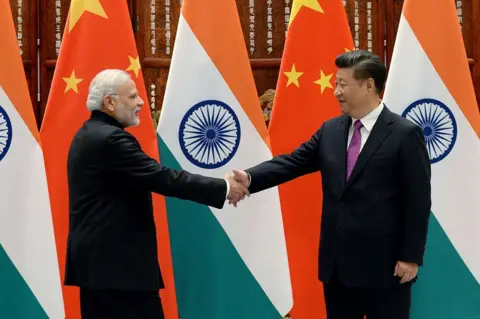In the heart of South Africa's political landscape, the Government of National Unity (GNU) stands as a fragile alliance between the African National Congress (ANC) and the Democratic Alliance (DA), both parties locked in a tense partnership with no clear intention of separation. This coalition emerged following the ANC's loss of its parliamentary majority in last year's election, marking a significant shift in South African politics. Despite publicly reassuring voters of stability, the coalition is riddled with challenges, often resembling a tumultuous marriage where both parties navigate their differences amidst incessant public squabbling.
President Cyril Ramaphosa of the ANC and DA leader John Steenhuisen have highlighted the potential of their partnership, particularly during moments like their joint appearance before US President Donald Trump, where they presented a united front on contentious issues. Nevertheless, their collaboration has been marred by ongoing disputes and dissatisfaction, stirring a mix of hopes and frustrations within the electorate. The recent fallout over Ramaphosa's dismissal of DA deputy minister Andrew Whitfield has further inflamed tensions, with Steenhuisen vehemently opposing controversial legislation pushed through by Ramaphosa’s government without adequate consultation.
As both parties grapple with ideological differences—ANC’s transformative agenda clashing with DA’s business-friendly policies—internal party factions complicate the coalition’s coherence. The DA grapples with its dual role as both a coalition member and an external critic, which has led to a discontented party base questioning the alliance’s effectiveness in addressing pressing issues like job creation and economic growth. Political analysts suggest that both the ANC and DA remain fearful of voter backlash should the coalition collapse, leading to a precarious status quo where mutual dependency supersedes discord.
In light of the escalating conflicts, parties are left to ponder the future of their coalition. Steenhuisen's acknowledgment of growing discontent within the DA signals a potential reevaluation of their role in the GNU, while Ramaphosa's hesitance to make any drastic moves suggests a desire to maintain stability. The lack of effective communication channels within their alliance is concerning, as both leaders face the pressing need to address grievances constructively and collaboratively. Survival is paramount, but the path forward remains fraught with uncertainty and instability in South Africa’s political arena.





















